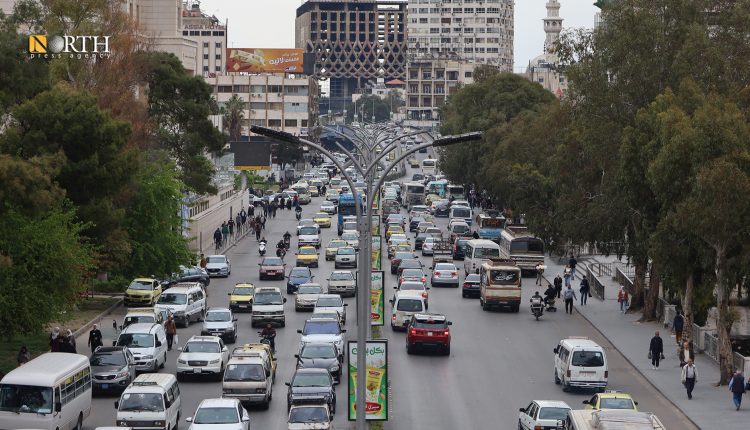Economist urges comprehensive strategy as Syria faces deep economic crises
DAMASCUS, Syria (North Press) – An economist urged on Tuesday Syria’s transitional government to adopt a comprehensive strategy to tackle deepening economic crises and capitalize on potential sanctions relief.
Abdurrahman Muhammad, economist and vice dean of the Faculty of Economics for Administrative Affairs at Hama University, told North Press that Syria is grappling with compounded economic crises, calling on the transitional government to adopt a comprehensive strategy that addresses root causes while leveraging emerging opportunities, including the potential lifting of international sanctions.
Muhammad said the crises include factory shutdowns, rising unemployment, and declining income levels.
He emphasized that rehabilitating infrastructure and essential services must be a top priority. “Ensuring access to electricity and energy is crucial to restarting industrial production,” he said, noting that 400 factories in Aleppo have resumed operations amid relative improvements in the power supply.
Muhammad also underscored the need to modernize medical equipment in hospitals, strengthen the education sector to build qualified human capital, and develop digital infrastructure to boost productivity and attract modern investments.
He stressed that revitalizing the industrial and agricultural sectors is vital for economic recovery. This includes supporting small and medium-sized enterprises, offering soft loans, and expanding agro-industrial activities to generate employment and reduce reliance on imports.
On monetary policy, Muhammad advocated for stabilizing the exchange rate by cracking down on the black market, channeling currency exchange through official mechanisms, integrating banks into the global financial system, and reforming tax policies to incentivize production and investment.
Promoting social justice, he said, is equally critical. This requires implementing targeted support programs, improving wages, and fighting corruption to rebuild public trust and ensure equitable wealth distribution.
Muhammad argued that attracting investment depends on creating a favorable legal environment and simplifying procedures. He urged authorities to seize the opportunity presented by potential sanctions relief to foster partnerships with international institutions and supportive nations, such as those in the Gulf.
Additionally, he called for encouraging Syrian expatriates to return and contribute to the country’s reconstruction.
He concluded that achieving these objectives demands a strong partnership between the government, the private sector, and the international community, guided by clear timelines and strategic plans encompassing economic relief, structural reform, and long-term development.
However, Muhammad cautioned that the success of any economic recovery strategy hinges on political stability and the adoption of an inclusive approach that ensures justice and transparency for all components of Syrian society.

